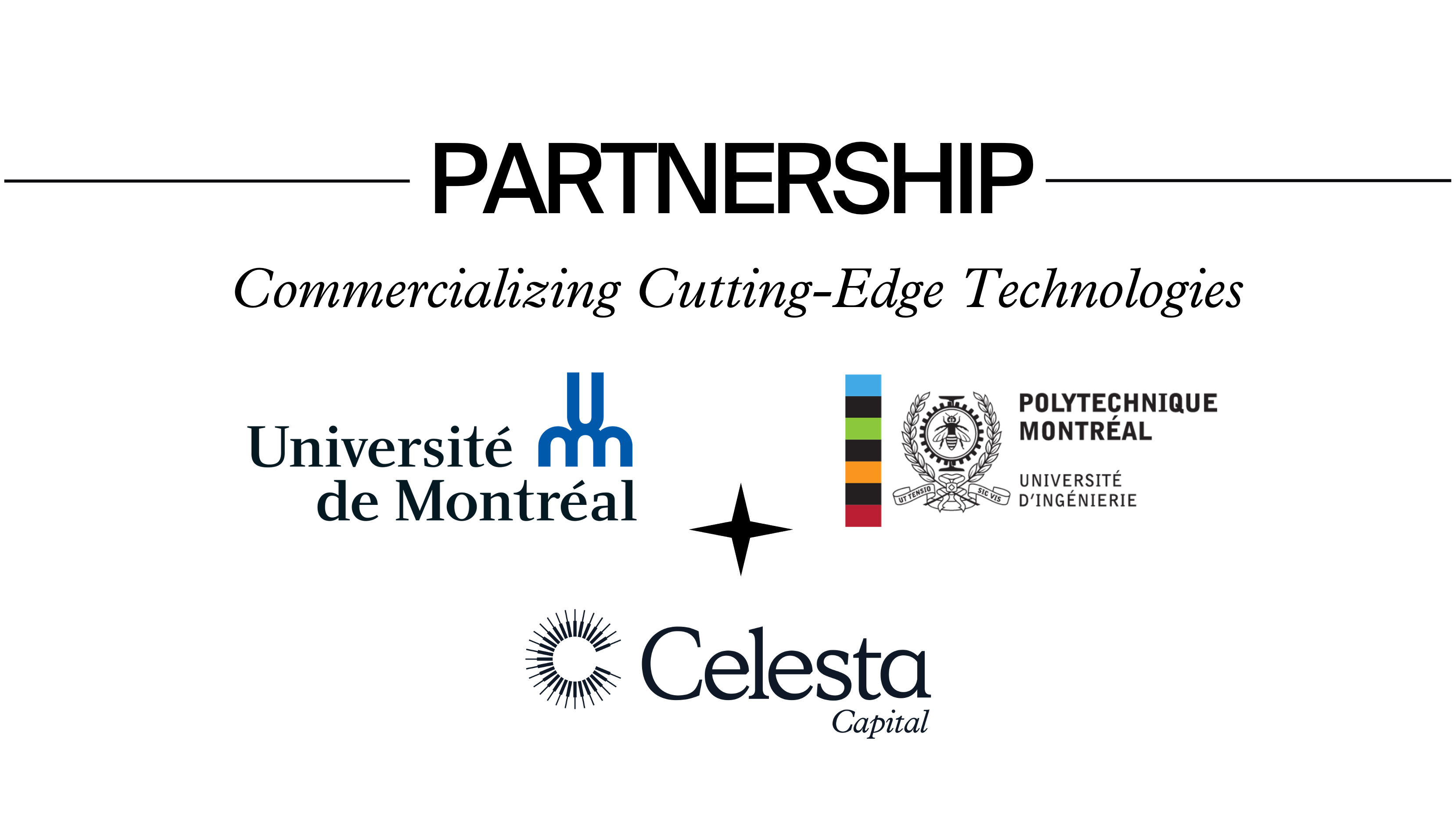Q&A with Partner David Goldman
Q&A with Partner David Goldman
David Goldman is a Partner of Celesta Capital. Prior to joining Celesta, he was an Associate at Paxion Capital, analyzing direct and fund investments across industries. While at Paxion, David took an operational role in the finance org of one of the firm’s portfolio companies helping to raise capital and oversee cash management in Saudi Arabia and the US. David started his career as an Analyst at DBO Partners, where he advised on M&A and capital raises for Semiconductor and Infrastructure Software companies.

David Goldman is a Partner of Celesta Capital. Prior to joining Celesta, he was an Associate at Paxion Capital, analyzing direct and fund investments across industries. While at Paxion, David took an operational role in the finance org of one of the firm’s portfolio companies helping to raise capital and oversee cash management in Saudi Arabia and the US. David started his career as an Analyst at DBO Partners, where he advised on M&A and capital raises for Semiconductor and Infrastructure Software companies.
What are the most important things early-stage companies should be thinking about in order to scale up to their potential?
The biggest mistake I see early-stage companies make is not valuing their time properly and spending too much time on things that are not of high value to the business. If you are a founder who's incredibly good with product or sales, you should not be negotiating NDAs or choosing the health plan. Focus where you can really add value and have 10X capabilities relative to the average person. We support our founders a lot in this arena, giving them advice, digging in to help them get critical projects done, as well as helping fill gaps by connecting them with executive talent or vetted outsourced partners.
At a company level, a lot of startups spend too much time chasing after lots of opportunities instead of focusing on only the best opportunities. Instead of stuffing the pipeline with customers who are a little bit interested, find a handful of customers that you can win and grow.
We have seen some uncertainty in the economy the last few years – why is now a good time to be a technology VC investor?
Over the previous few years, we saw many deals where investors were seemingly willing to overlook flaws in a business model, or ignore profitability in favor of rising valuations. What we are seeing now is adrift towards quality over quantity. A lot of VC funds are still sitting on dry powder; funds are still being raised and you still see deal announcements in the headlines. But, firms are being much more selective in how they allocate capital.
Fantastic technologies and founders are still out there, so you can still find high-caliber talent who are starting companies, even in downturns. Sometimes even more so in downturns, as big tech contracts and talent is on the move. If you are a firm who likes to invest in companies with substantive innovation with the potential to build durable, scalable business models, it’s a fantastic time to be in venture tech.
Which sectors or tech trends are you most paying most attention to?
We get this question a lot. One of the great things about Celesta’s network is we are fortunate to be introduced to technologies that have created disruption in a legacy market in a way that few would have been able to ever predict. It’s oftentimes an application of a technology that the founder invented or revolutionized.
Our approach is to say that we're interested in innovative companies that can drive mass adoption of emerging tech, period. We're willing to talk to anyone who has a disruptive invention or system-level innovation – anything that is true tech innovation. Even if they are applying it to a market we've never entered previously as a firm, we're willing to take that meeting and those are often fantastic investments.
Fantastic technologies and founders are still out there, so you can still find high-caliber talent who are starting companies, even in downturns. Sometimes even more so in downturns.
Please share your background and experience prior to Celesta.
I started my career in investment banking, with a focus on the infrastructure software and chip sectors. I spent a great deal of time researching and market mapping AI accelerators, low-power chips for edge applications, and compiler companies, which was my initial introduction to the areas in which we now invest a lot at Celesta. Many of our portfolio companies from Celesta’s early funds made it into that analysis, long before I knew anything about Celesta.
After two years in banking, I went to go work for a multifamily office where we did a mix of indirect investing in funds as well as direct investing through both venture and private equity-style deals. This introduced me to the Celesta team. Over the next couple of years, I worked more and more with their team on co-investments and moved into one of Celesta’s portfolio companies for some operating experience, and eventually I moved into the firm full-time.
What are some of the major components of your day-to-day role as an investment partner?
Evaluating new potential deals is a large part of what I do. These come from many sources – interesting companies I discover, warm introductions through our partner network, and many directly from our GPs. This is a collaborative process, and we'll typically have one technical lead with relevant technical diligence expertise and then one person with more financial expertise, like myself. This helps ensure we’re able to go deep across all dimensions of the deal, particularly the potential of the tech and the economics.
Another aspect of my role is direct support for our portfolio companies. With some, I'm very intimately involved as a board member or observer and will meet with senior management regularly. We make ourselves available to offer advice, help work through any challenges, prepare for board meetings, whatever it may be. As needed, I also offer my finance experience to help portfolio companies with needs like structuring deals, forecasting, and active cash management.
How do you evaluate founders for potential investment?
Generally, there are the two kinds of founders I think we're typically looking for which also happen to be some of our most successful investments.
One is companies for whom this is the founder’s life's work, such as a first-time founder who is the inventor of the technology as an extension of their PhD or postdoc work. They are very passionate about their tech and want to bring it to mass market. What they lack in experience, they bring in tenacity.
The other category is founders who have experience scaling successful companies, but recognize the complementary skill set Celesta can offer. Because they've been through the process before, they recognize that having committed long-term partners who support you with financial and intellectual capital is incredibly valuable, and they seek us out for that reason.






